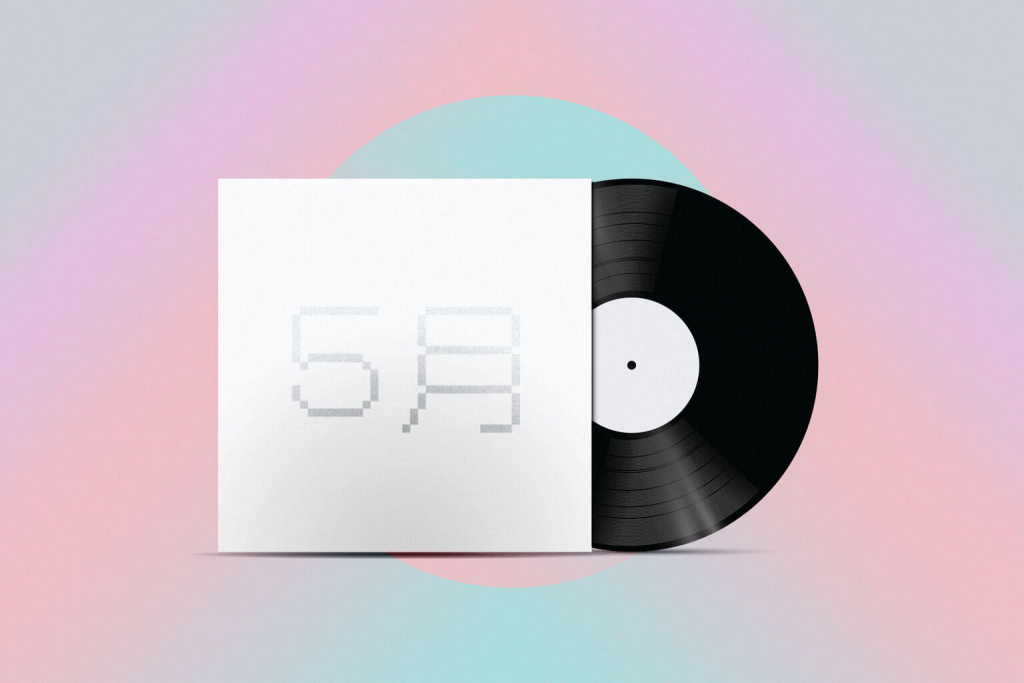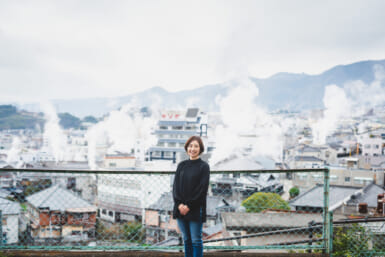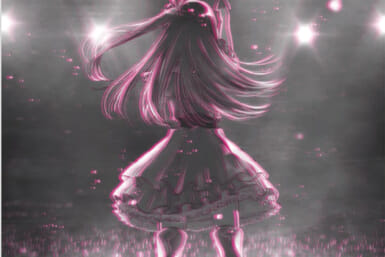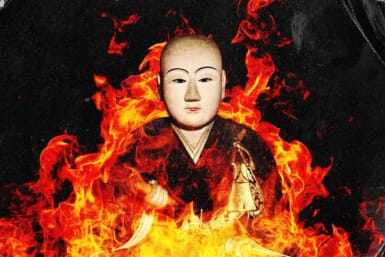Welcome to our roundup of the best Japanese albums from May 2022. Highlights include the farewell album from Kikagaku Moyo, a restrained-NRG first from Yousuke Yukimatsu and a Nintendo game soundtrack release from Tatsuhiko Asano.
Shoko Igarashi – Simple Sentences
Best album for choosing beads from that bead shop in Kichijoji to make a bracelet
As is the case with any Japanese female-identifying artist, the comparisons to predecessors are hard to miss. The stop-start nature of many of Shoko Igarashi’s songs brings to mind the experimentalism by Miyako Koda from pioneering band, Dip in the Pool.
“Sand Dungeon” is a great piece of post-EBM disco, with an imitable Telex synth bassline ending on a slow head bobbing chug to finish. “Anime Song” brings to mind Ape Escape composer, Soichi Terada, known for his love of MPC and Nintendo sounds over danceable tracks.
Head over to “Comfy Place” and the downtempo track opens with a funky bassline and eerie vocaloid-esque vocals speaking about a ‘comfy place.’ Even though we are in the first part of the album, it is already impressive to think that the songs were created by one person, evidently with an encyclopedic musical knowledge.
With “Shokoism” she pays homage to her Far Eastern roots, a slice of orientalism amongst distinctly western influences. Head onto “Monochrome Chronicle,” sang predominantly in Japanese then onto “Lovely Song” which is exactly that. An unassuming imagining of a classic lullaby, inserted into a fully modern setup.
“CASH OK” sees a full-on elevator tracked by Igarashi’s expert sax, with hints of birdsong along the way. “AppleBanana” is basically a cooler version of pen-pineapple. “Tsuki no Yama” closes the album, enka style.
Yousuke Yukimatsu – Midnight is Comin’
Best album to walk underneath a Japanese underpass at midnight
An impressively kinetic performer, Yousuke Yukimatsu has drawn comments for his playing style – most of it good, some of it not so. Known for taking off his shirt during performances, he plays the part of the performance DJ exceptionally. Anything goes, as he possesses an incredible ear, coupled with an unrivaled talent for being able to work the crowd to his will. Subsequently, he is heralded by many as one of the best DJs in Japan right now.
So, how does his ability to work the crowd at a live event translate to a downloadable album?
The impressive track list soon answers that. It reads like a who’s who of highly-rated Japanese and global artists. The likes of YPY, Compuma and Sapphire Slows have all donated original productions to Yukimatsu’s mix. Surprisingly, each song is dark and highly restrained, pulling out deep bass for a trip to Yukimatsu’s swamp. In contrast to other lauded, hi-NRG instances of Yukimatsu – take that infamous Boiler Room set – this shows a concise and considered artist, versatile and somewhat foreboding.
Hitsujibungaku – Our Hope
Best album to search for something you lost under your car seat
For their third studio album, Hitsujibungaku serve up a slew of shoegaze guitar and dreamy indie-rock over 12 meaty tracks. The current iteration of members has been in play since 2017 and the band has appeared at Fuji Rock festival and other significant venues across Japan.
With their song “Hikaru Toki” used as the theme for popular anime, “The Heike Story,” the trio have seen a surge in popularity, which arrived just as the pandemic seems to be winding down. With “Our Hope” they will be hoping to fully capitalize on their fame. This album could not have come at a better time.
Tatsuhiko Asano – In The Wake of Doshin, the GIANT
Best album to buy fish and chips from the van in Ishigaki Island
An original soundtrack by veteran musician Tatsuhiko Asano for the cult Nintendo video game Doshin the Giant is to be released on vinyl for the first time.
A largely ambient affair swelling with slack key guitar, “Campfire” (“Tabi”) is one to play at the beach. “The Island Without Anything” (“Nani mo nai Shima”) is a playful snatch of sound that is easy to imagine hearing while jumping over blocks in a Nintendo game.
Kikagaku Moyo – Kumoyo Island
Best album for going on a journey to seek out magical herbs in Fiji
Since their formation 10 years ago, Kikagaku Moyo have invented their own language and redefined the Japanese psych-rock band set-up. Alas, unlike predecessors such as Yellow Magic Orchestra and Boredoms, fame overseas did not translate into popularity in their home country. And there are a notable lack of ‘homecoming’ shows on their farewell tour. Kikagaku Moyo, if you read this: please do a Japanese show.
Subtle melodies open “Monaka,” named after the traditional Japanese wafer sweet. Crooning vocals from the two frontmen begin to deconstruct the title, ‘Mo-na-ka-mo…’ before heading into Kikaku Moyo’s invented language to accompany Ryu Kurosawa’s twanging sitar as it gently washes along the beach of percussion.
“Dancing Blue” pulls us into a gleeful cowboy-style groove to the ice cream stand bassline. Back to the Kikagaku Moyo beach for a full-on Balearic sunbathe with “Effe,” a gloriously simple song that is big on the melody and calm on the bass, with snares aplenty and even some gentle birdsong.
Their cover of “Meu Mar” by Erasmos Carlos is an indie wet dream that Mac DeMarco would be proud of. “Cardboard Pile” provides white noise to disrupt the sense of false relaxation into which we were lured into with the previous tracks.
The effervescent “Daydream Soda” does what it says on the tin (or can?). Distant drums chug along sluggishly in the background of the track, overlaid with delicious-sounding twinkles and crackles. “Field of Tiger Lillies” gets out the electric guitar for a short interlude.
“Yayoi, Iyayoi” is a rare instance of a song sung in their native tongue, over their most rock-inspired track on the album. Whilst personally, “Effe” seems more of a nap song than actual “Nap Song,” the latter ushering in surf over murmuring guitar licks to round off a track that does indeed feel by the end, like a track you could nap to.
Hiroshi Ebina – It Just Is
Best album for sitting amongst the stones in an empty zen garden on a summer’s day
An album of minimalist ambient soundscapes from Hiroshi Ebina. Undeniably, Ebina has a wealth of musical knowledge, displayed in the wide range of instruments he utilizes on It Just Is.
Each of the scenes on the album provides a glimpse into a zen garden (he mentions Kyoto’s Ryoanji Temple), with calming stone clinks buoyed with acoustic tones. Each listen reveals new layers, as Ebina invites us to detect ourselves from preconceptions in order to take the music as it is, unadulterated and pure.








